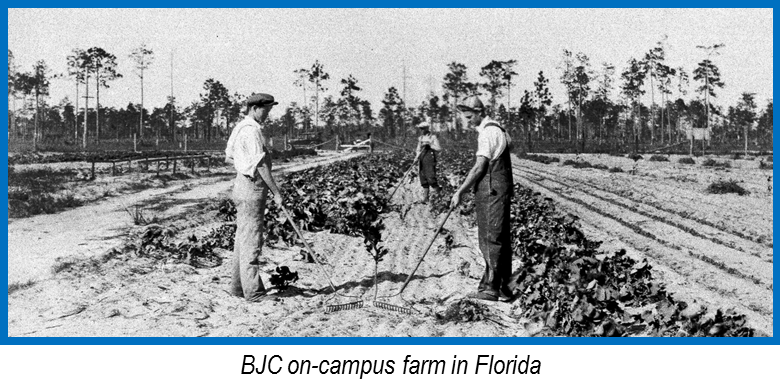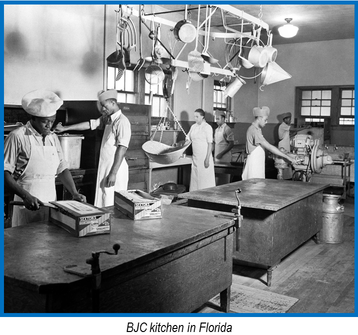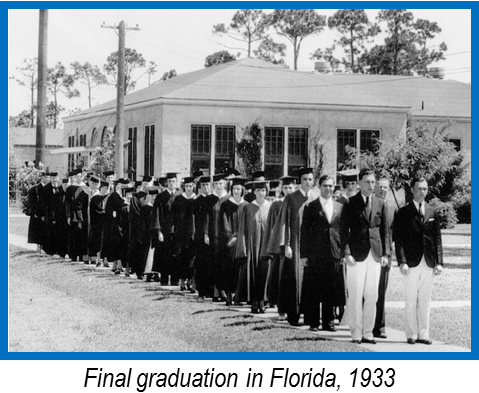“Yea, though I walk through the valley of the shadow of death, I will fear no evil: for thou art with me” (Psalm 23:4). Bob Jones College and the Academy faced difficult times during the Great Depression. It seemed that Satan would have his way in closing the school; but even through the dark days, God’s hand of blessing rested on BJC. This segment of Bill Pinkston’s compilation recalls the last days in Florida—in spite of great struggle, God did not forsake the school.
The Great Depression hit everyone hard. Well-to-do people became penniless. The working class became jobless and homeless. The value of real estate plummeted. Bob Jones College was doing well to merely survive, and it was doing that by cutting back and sacrificing.
The school had an on-campus farm which supplied much of the needed food and work for some students, enabling them to stay in school. Some students paid their school bill in commodities. One student paid his entire year’s bill in collard greens, which became such a menu staple that some students claimed that BJC stood for Big Juicy Collards (Turner, 47).

At one point Dr. Jones asked the faculty to voluntarily take a 10% pay cut. As the financial situation worsened, he addressed the faculty: “We are broke, and we can’t continue to pay the large salaries we’ve been paying. We will give you a place to live and something to eat for all members of the family, plus a little cash.” One faculty member responded, “Did you say that you would give us a place to live, plus the food we eat, plus some cash? I have never been any better off than that. I will take it.” So did the rest of the faculty, starting an employment system that would basically continue until the 1980s (Turner, 48).
 Through similar belt-tightening and Dr. Jones’s pouring virtually all of his speaking income into the school, BJC was able to continue its operations through 1932. Because income from the sale of College Point land was nonexistent, payment of the interest due on the BJC Development Bonds was beyond the school’s resources.
Through similar belt-tightening and Dr. Jones’s pouring virtually all of his speaking income into the school, BJC was able to continue its operations through 1932. Because income from the sale of College Point land was nonexistent, payment of the interest due on the BJC Development Bonds was beyond the school’s resources.
Dr. Jones cashed in his life insurance policy and sold the land of his boyhood home to pay the school’s debts. He appealed to the bondholders to sell the bonds back at face value. Some did. Others were willing to put off claiming their payments until later.
However, some of BJC’s creditors were not so willing to cooperate. The northern property developer had verbally agreed that if the College Point land did not sell, they would not collect on their $80,000 worth of bonds. However, at the urging of several local disgruntled bondholders, the developer reneged on the agreement. They took BJC to court, and the college was forced into bankruptcy. On January 26, 1933, Dr. Jones signed the papers transferring all of the school’s assets to the court for liquidation (51).

Pinkston, W.S. (2016). A History of Bob Jones Academy.
Turner, D.L (2002). Standing Without Apology. Greenville, SC: BJU Press.

Comments are closed.